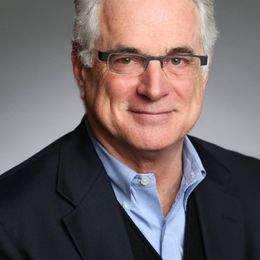Coming Soon: 2 New Encore Career Programs at Colleges
How Notre Dame and University of Texas will help people launch second acts
You’re in your 50s or older. The thought of retiring isn’t appealing to your finances or mental health. But you’re starting to burn out on your current job and career. You’d like to launch your next act and find work in a different industry or occupation that offers meaning and money, purpose and a paycheck. But you figure you’ll need additional education to navigate your career transition. Sound familiar?

Problem is, America’s colleges generally haven’t rolled out the welcome mat to older learners. They’re still largely focused on young undergrads and grad students. Typical offerings for people 50+ are geared toward retirees eager to take the Renaissance Art or History of Science class they missed (or slept through) decades ago. While these classes are intellectually stimulating, they aren’t especially useful to the millions looking to launch their second or third acts.
Encore Career Programs on Campus
But wait: Innovations are taking shape that hold the tantalizing promise of pushing colleges closer to an intergenerational career-and-job oriented model.
The future isn’t here yet, but it may be pounding on the hallowed school doors — thanks to a small group of practical idealists setting up next act or encore career centers at institutions of higher learning.
New Encore Career Programs: Notre Dame and University of Texas
The founders are on a mission, collaborating and sharing information and lessons learned to boost the odds of success. Two encore career centers — at Notre Dame and the University of Texas — will open next year (more on that in a minute) and their leaders are fielding calls from other schools seeking insights on how to set up comparable initiatives.
“There is no one path or blueprint. We’re all trying to figure it out,” says sociology professor Phyllis Moen, co-founder of the University of Minnesota Advanced Careers Initiative, which launched in 2017. Adds her co-founder Kate Schaefers: “We want all of us to be successful. We’re all in this together.”
To be sure, the current programs at Stanford and Harvard plus the two new ones are expensive (in the $50,000 range), as well as elite and small. University of Minnesota’s is a notable exception: its 2017-18 program fee was $10,000 and the next class will pay $15,000 each. A few shorter programs are less expensive: the Encore Transition Program at Union Theological Seminary in New York City ($3,000), the Encore Hamline Fellows at Hamline College in St. Paul, Minn. ($695) and Encore!Connecticut at the University of Connecticut in Hartford and Fairfield counties ($3,950).
Still, the latest pioneers hope to ultimately turn their encore career experiments from elite market to mass market in a time-honored rhythm.
If that happens, colleges will edge closer to becoming multigenerational institutions with a core mission of lifelong learning and engagement, working with older adults hoping to gain the skills and knowledge they need to work well beyond today's normal retirement age.
“My sincere hope is that this program runs the full spectrum of higher education over time,” says Thomas Schreier, Jr., founder of the Inspired Leadership Initiative at the University of Notre Dame. It will be a one-year program for up to 25 “fellows” — Notre Dame is looking for “accomplished leaders at the end of their careers” with at least 25 years’ experience (and their spouses or partners).
Adds Philip Pizzo, founder and head of Stanford University’s Distinguished Career Institute: “We’re not looking to take the Stanford program and franchise it. Let’s think this through together and develop more and different programs tailored to the community the institution serves — public universities, private colleges and community colleges.”
How the UT Encore Career Program Happened
Schreier’s experience is illuminating. For one thing, he was looking for his next act.
Schreier had a 30-plus year career in finance; his last job was chairman of Nuveen Asset Management and vice chairman of the parent company’s money management firm. He stepped down in 2016 in his mid-50s. Wondering what challenge to take on next, he enrolled in both the Stanford Leadership Institute and the Advanced Leadership Initiative at Harvard University.
A decision loomed when Schreier dropped his daughter off at Notre Dame (his alma mater) to start school. While there, he got into a conversation with a former classmate and administrator and ended up having an impromptu meeting with several other Notre Dame administrators — sweating, wearing shorts and flip flops. They wondered if he would consider starting an encore program at Notre Dame.
After a couple of critical meetings later, including with Jack Brennan, chair of the board of trustees and former longtime head of the Vanguard mutual fund behemoth, Schreier got to work. He soon met with Pizzo, Moen, Schaefers and others to gather insight on starting the venture — remarkably quickly for an academic enterprise.
The one-year program will admit its first class of fellows in 2018-2019. The fee: $50,000 per fellow; $25,000 for a spouse or life partner (housing is not included). Some applicants may receive financial aid. The fellows will audit classes, attend lectures and participate in a tailored core curriculum, tapping into the resources of Notre Dame. They’ll journey overseas through the Notre Dame Global Gateways network in places like Rome and Beijing.
Since fellows will hope to make a difference in their encore careers, Notre Dame’s Irish Angel Network of high-risk investors will look at any social enterprise proposals the fellows develop. “The Notre Dame vernacular is we want people to be a ‘positive force for good’,” says Schreier.
Who the UT Encore Career Program Wants
At the University of Texas, Austin, the nine-month-long TOWER Fellows Program will also launch later in 2018.
TOWER was started by two graduates of the Stanford Distinguished Career Institute program. It’s for “exceptional individuals who have built a career of major accomplishments (20-30 years) and who now seek to deepen their knowledge and/or embrace new fields.” Cost: $59,500 (housing is not included); a “select number of applicants” may be eligible for financial aid.
Schreier says he is in communication with another four to five institutions, two of them abroad. Moen and Schaefers are also offering guidance on other proposals making their way to senior administrations at other schools.
The program leaders of the newer encore programs have spent much of their time convincing professors at their schools that the fellows are welcome additions to their classes. They’re succeeding, by all reports.
The Identity of an Encore Program Fellow
Several programs, such as the University of Minnesota, Encore!Connecticut and Hamline Fellows are developing strong ties with the local nonprofit community for their fellows.
Moen and Schaefers say they’ve learned that the title “fellow gives them an identity,” says Moen. “They’re no longer on their own. They all get cards that they’re a fellow at the Advanced Careers Initiative at the University of Minnesota.”
It’s too soon to call these programs a sure thing or to be certain they’ll spawn others. Some earlier, highly-touted proposals for skill-based education targeted at an older population have faded due to a lack of funding or administration support. And the number of centers and fellows is currently small compared to the demand and need.
The founders of these next act university-based centers seem to have landed on a formula that works. But whether lower-cost options will spread is an open question.
“We are only at the beginning,” says Pizzo.


